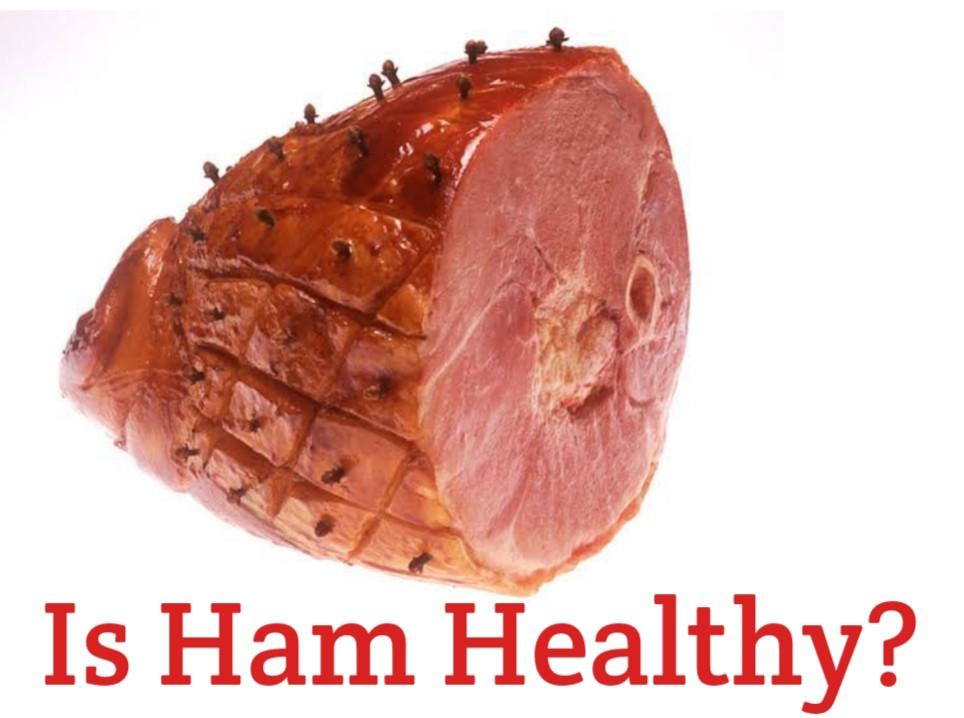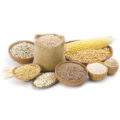Ham is pork from a leg cut that has been preserved by wet or dry curing, with or without smoking. As a processed meat, the term “ham” includes both whole cuts of meat and ones that have been mechanically formed. Ham, like all meat, is an excellent source of complete protein, with a 4-ounce portion serving up around 20 grams. Protein is needed to build and repair tissues, as well as make enzymes, hormones, and other body chemicals. And while we often associate greater protein needs with growing bodies, research is increasingly showing that pumping up your protein no matter your age can boost your health and help prevent a decline in muscle mass with aging. Along with thwarting weakness as we head into our twilight years, maintaining muscle mass has another powerful benefit: it decreases the risk of fracture from falls.
Ham, especially lean ham with its fat trimmed away, is relatively low in fat and calories, which is good for those watching their weight and fat intake. An average 4-ounce serving, for example, has only 120 calories and about 4 grams of total fat, of which only 1 gram is saturated fat. When ham is cured, the meat is soaked, injected, or rubbed with brine. Brine is a combination of salt and water. The salt used is called sodium nitrate and it prevents bacterial growth in the meat. Some meat companies add sugar, preservatives, and spices for a better flavor and to give it a longer storage life.
Vitamin and Mineral Content Of Ham
Ham is an excellent source of vitamins and minerals. The nutrients found in ham are:
• Vitamin B6
• Vitamin B12
• Copper
• Iron
• Magnesium
• Niacin
• Pantothenic Acid
• Potassium
• Phosphorus
• Riboflavin
• Thiamine
• Zinc
Is Ham Healthy?
A 3.5-ounce serving of lean ham supplies 16.5 grams of the 46 to 56 grams of protein you need each day. The same serving of ham provides 1.6 milligrams of the 8 to 11 milligrams of zinc required on a daily basis. Zinc supports proper wound healing and boosts your immunity. However, a large amount of sodium in most kinds of ham is a nutritional drawback to the food. According to Mayo Clinic, the daily upper limit of sodium for most healthy adults is 2,300 milligrams. Adults over age 50, individuals with heart problems, and African Americans should restrict sodium intake to 1,500 milligrams or less each day. Too much sodium can increase your risk of developing heart disease and can also contribute to an elevated risk of stroke, kidney disease, and hypertension.
In addition, cured ham and ham steaks contain nitrates to help preserve the meat and improve the flavor. Consuming large amounts of nitrates can cause methemoglobinemia, a condition of elevated methemoglobin in the blood. Symptoms may include headache, dizziness, shortness of breath, nausea, poor muscle coordination, and blue-colored skin (cyanosis). This condition prevents your red blood cells from transporting oxygen through your body properly. The nitrates in cured meats can also be broken down into nitrosamines, which are carcinogens and might be linked to an increased risk of certain types of cancer.
Ham is a diet high in saturated fat which contributes to unhealthy cholesterol levels by raising harmful LDL numbers and lowering beneficial HDL numbers. According to Cleveland Clinic, taking in too much saturated fat is linked with raising levels of “bad” LDL cholesterol in the blood and increasing internal inflammation. Healthy adults should limit their saturated fat intake to no more than 10% of total calories. For a person eating a 2000 calorie diet, this would be 22 grams of saturated fat or less per day. If you have elevated LDL cholesterol levels, it is recommended to reduce saturated fat intake to no more than 7% of total calories.
Conclusion
If you must eat them, then opt for lean ham and look for varieties that are low in sodium. Many food companies now produce ham that does not contain nitrates. These varieties of ham are healthier and better for you as well. Use lean ham to make a protein-packed sandwich, or chop it into small pieces and add it to your breakfast omelet. There are over 15 healthy Ham recipes, choose the right one that fits your lifestyle, age, and health condition. SEE: Is Basmati Rice Healthy





